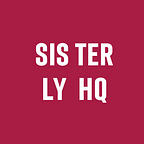Female Pioneers in the Nigerian Music Industry: Unsung Heroes
Written by Annie Debbie
Different voices have contributed to the amplification of Nigerian music, in different genres. However, male voices have more representation and recognition than female voices. This has been the case since time immemorial, worse still for older generations.
Why is this?
The music industry as an extension of society has always been a heavily male-dominated space. Patriarchy and stereotypes have bedevilled us from time-immemorial and seeped into the music industry.
Women had certain roles, and to be a female musician, except maybe a gospel artiste, you were the “bad gyal”. Ironically, for an industry that can be non-conformist, it’s amazing to see this happen.
Also, the lack of adequate documentation has plagued Nigeria and this has seeped into the music industry. Indeed, some female musicians who would have been considered popular might have gone into obscurity because of a lack of proper documentation. It is easier to find facts and details about their male counterparts.
The lack of recognition and representation takes away from the wholesome knowledge and understanding of Nigerian culture and music history.
We are seeing a gradual rise of successful female acts across different genres, yet, for a country where the number of women amounts to almost half of a population of over 200 million people, women’s representation in the industry is disappointing.
This new generation of female popular artists stands on the shoulder of giants — Nigerian female pioneers, and the voices of the unsung heroes, who have paved the way for female and even male artists. Hence, whatever the reasons for the disparity and despite the few facts available, the stories of these women need to be told.
In this piece, we are putting the spotlight on Evi Edna Ogholi, crowned Nigeria’s queen of reggae because of her phenomenal work in the genre.
EVI EDNA OGHOLI
Evi Edna was born in Isoko, Delta state (then Midwest Region). Her father was a reverend and her mother, a school teacher. Schooling in Isoko and reading the Bible in the Isoko language had a great impact on the language of her music and helped her seamlessly fuse the foreign reggae genre with her local dialect.
In 1987, she made a bold move and left her home in Delta for Lagos to pursue a career in music. Arriving in Lagos with only a demo, the prolific singer quickly turned her fortune around. That same year, she released her debut album titled “My Kind of Music” under Polygram (now called “Premier Records”). It was around this time, she met Emma Oghosi who first became her producer and manager then, husband. Their marriage was blessed with two children — Dumebi and Adora.
The following year in 1988, she released two albums “On The Move” and “Happy Birthday”.
Evi started her music career in the late 80s and early 90s, when the fervour for Reggae music began in Nigeria. The Mandators, Majek Fashek, Razkimono, all Nigeria male reggae legends, released several hits those years. Yet during this buzz and despite her male domination, Evi’s light shone bright and wasn’t dimmed by her male counterparts.
She was inspired by reggae legends like Bob Marley, Jacob Miller, Sugar Minott and themes common to reggae songs such as love, unity, and peace.
Her consistency, handwork, and talent are evident in her back-to-back releases of first-rate albums and singles.
In fact, three of her albums reportedly went platinum i.e. sold over a million copies. This was no mean feat especially as gatekeeping in the music industry was such a thing and hassles in making and distributing music and physical records (CDs and cassettes) reigned. According to an interview with Guardian, she still receives royalties from her music.
“Happy birthday”, her most popular song was sure to be played at birthdays all over West Africa and is still a birthday jam. Songs like “Message to the Youth”, “No Place Like Home” contain socially relevant messages and are timeless.
Apart from these, Ogholi toured West Africa and was a brand ambassador with Pepsi.
However, Evi abruptly disappeared from the music scene in 1990. It was an echoing silence for years and there were speculations of her death.
Her husband in an interview claimed she had left because of their dwindling fortune. Nevertheless, Evi in an interview confessed her reason for leaving the marriage. She said “I travelled out of Nigeria because of my ex-husband (Emma Ogosi). He is very VIOLENT. Emma Ogosi turned me to his PUNCHING BAG, while I was married to him.” So she took her children and fled for her life to Paris, France.
Gladly, her story doesn’t end here.
Beyond her music, Evi, who was already an active humanitarian, was a volunteer with UNICEF International, Paris. Her work with UNICEF spanned 2 decades. After coming back to the limelight, in 2020, she was honoured as the Ambassador of Hope and Peace to the Aid People Change Nigeria (APCN) Organization as a reflection of the great work she does. She also hosted the APCN 12th Awards night last year.
In 2020, she apologized for her long hiatus and released a new album titled ‘’Peace and Love”. The new album keeps her kind of music but also infuses jazz, an influence of her stay in Paris.
So pretty. I would definitely rock this for an 80s themed party, hell, I would definitely rock this to look retro?
What are your thoughts? Which pioneer female artiste would you like to be featured next?
You can stream or purchase Evi’s songs here: Apple music, Boomplay, Spotify, YouTube Music
Animashaun Deborah (Annie Debbie) is a lawyer with a love for music and a passion for the law. She loves telling stories, told and untold. When she’s not reading, you can catch her pretence performing, daydreaming or playing. Connect with Annie Debbie on LinkedIn.
Edited by Chizulu E. Uwolloh
